Immune Activity

How does consistent physical activity affect the immune system in relation to chronic disease prevention ?
The article discusses the impact of consistent physical activity on the immune system and its role in preventing chronic diseases. It explains that regular exercise can increase the number and activity of immune cells, reduce inflammation, and improve overall health. The article also provides recommendations for exercise and emphasizes the importance of incorporating physical activity into one's lifestyle to prevent chronic diseases and improve well-being.

Is there a specific duration or intensity of exercise needed to improve immune function ?
The relationship between exercise and immune function is complex, but research suggests that regular physical activity can enhance the immune system. However, both the duration and intensity of exercise play significant roles in achieving this beneficial effect. The American Heart Association recommends at least 150 minutes of moderate-intensity aerobic activity or 75 minutes of vigorous-intensity activity per week for adults. Engaging in prolonged periods of endurance exercise can temporarily suppress immune function due to increased stress on the body. Light activities like walking or yoga can still offer immune benefits by reducing stress and promoting overall health. Regular moderate to high-intensity exercises, such as jogging, cycling, or strength training, are generally considered optimal for enhancing immune function. Adequate rest and recovery are crucial for maintaining a healthy immune system. Combining different types of exercises (aerobic, strength training, flexibility work) can provide a well-rounded approach to enhancing immune function. Staying hydrated and consuming a balanced diet rich in nutrients supports both exercise performance and immune health. Other lifestyle habits, including sleep quality, stress management, and avoidance of harmful substances, also play a vital role in supporting immune function alongside exercise.

Can exercise boost the immune system ?
Exercise can indeed boost the immune system through various mechanisms, including enhanced circulation, reduced inflammation, weight management, stress reduction, improved sleep, increased self-esteem and mental health, microbiome diversity, temperature regulation, prevention of chronic diseases, and social interaction. Regular moderate exercise is generally considered beneficial for the immune system, but it's essential to consult with healthcare professionals to determine the appropriate amount and intensity of exercise for individual needs and circumstances.
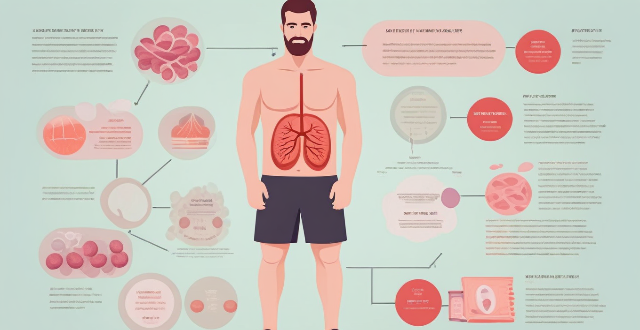
How does regular exercise contribute to boosting the immune system ?
Regular exercise has numerous health benefits, including boosting the immune system. It promotes increased blood circulation, reduces inflammation, helps in weight management, reduces stress, improves sleep quality, enhances gut health, increases antioxidant capacity, supports cardiovascular health, enhances mental health, and contributes to increased longevity. Incorporating regular physical activity into your lifestyle can support a strong and resilient immune system.
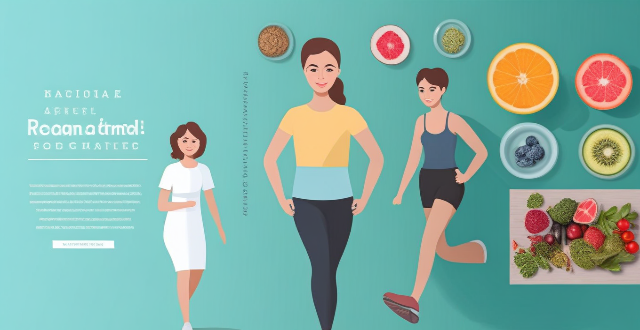
Does consistent exercise reduce the risk of catching colds and flu ?
Regular physical activity is known for its health benefits, including potential protection against colds and flu. Studies suggest that exercise can enhance immune system function by improving circulation and inducing a mild inflammatory response. However, the evidence is mixed, with some studies showing a clear link between regular exercise and reduced respiratory infections, while others do not. Potential mechanisms include improved immune surveillance, stress reduction, and increased circulation of immune cells. To benefit from these effects, it is recommended to engage in moderate to high levels of physical activity, such as 150 minutes of moderate aerobic activity or 75 minutes of vigorous activity per week, along with strength training exercises. Overtraining should be avoided, as it can weaken the immune system. Good hygiene practices are also essential for preventing colds and flu.

Can regular physical activity prevent age-related diseases ?
The text discusses the potential of regular physical activity to prevent age-related diseases, highlighting its numerous benefits such as improved cardiovascular health, enhanced immune function, better bone density, reduced inflammation, and improved mental health. It further elaborates on how these benefits can specifically prevent or delay the onset of diseases like cardiovascular diseases, diabetes, osteoporosis, cancer, and dementia. The conclusion emphasizes that while regular physical activity can play a significant role in preventing age-related diseases, it should be part of a comprehensive approach to health that also includes a balanced diet, adequate sleep, and stress management.

Is it true that certain superfoods can boost your immune system ?
Incorporating superfoods like citrus fruits, garlic, ginger, spinach, yogurt, nuts and seeds, blueberries, and turmeric into your diet can help support immune health by providing key nutrients such as vitamin C, vitamin D, zinc, protein, and antioxidants. These foods offer a range of benefits including boosting white blood cell production, reducing inflammation, supporting digestive health, and protecting against oxidative stress. However, it's important to maintain a balanced diet and lifestyle for overall immune support.

Can excessive training have negative effects on the immune system ?
Excessive training, or overtraining, can have negative effects on the immune system. Regular exercise enhances immune function by stimulating antibody and white blood cell production, reducing inflammation, and improving circulation. However, excessive training can cause chronic inflammation, oxidative stress, and hormonal imbalances that suppress immune function. Signs of overtraining syndrome include chronic fatigue, mood changes, and increased susceptibility to illness. To prevent overtraining and maintain immune health, individuals should follow a balanced training program, prioritize sleep, eat a nutrient-rich diet, and manage stress levels.

How can I improve my diet to boost my immune system ?
Improving your diet is one of the best ways to boost your immune system. Here are some tips on how you can do that: ## Eat a Variety of Foods Eating a variety of foods ensures that you get all the essential nutrients your body needs. This includes fruits, vegetables, whole grains, lean proteins, and healthy fats. Aim for at least five servings of fruits and vegetables per day. ### Fruits and Vegetables - Apples - Bananas - Berries - Broccoli - Carrots - Spinach ### Whole Grains - Oats - Quinoa - Brown Rice ### Lean Proteins - Chicken breast - Fish (such as salmon or tuna) - Legumes (such as lentils or chickpeas) ### Healthy Fats - Avocados - Nuts (such as almonds or walnuts) - Seeds (such as chia or flaxseed) ## Stay Hydrated Drinking enough water is crucial for maintaining a healthy immune system. Aim for at least eight glasses of water per day, and more if you're active or it's hot outside. You can also stay hydrated by drinking herbal teas or eating water-rich foods like cucumbers, melons, and strawberries. ## Limit Processed Foods and Sugary Drinks Processed foods and sugary drinks can weaken your immune system by causing inflammation in your body. Try to limit these foods and drinks as much as possible, and opt for whole, nutrient-dense foods instead. ## Consider Taking Supplements If you're not getting enough vitamins and minerals from your diet, consider taking supplements. Some common supplements that may help boost your immune system include vitamin C, vitamin D, zinc, and probiotics. However, be sure to talk to your doctor before starting any new supplements.
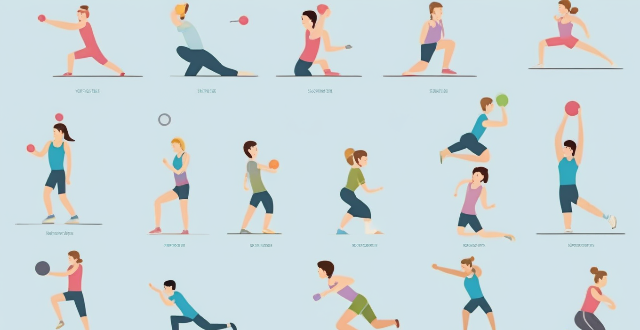
Are there any particular sports or exercises that have been studied for their impact on immunity ?
This article discusses the impact of various sports and exercises on immunity, including aerobic exercise, resistance training, high-intensity interval training (HIIT), and yoga/meditation. It highlights the positive effects of these activities on immune function when performed regularly and appropriately, such as increased blood flow, enhanced immune cell production, improved cardiovascular health, and reduced inflammation. However, it also emphasizes the potential negative effects of excessive exercise or overtraining on immunity, urging individuals to find a balance between physical activity and rest.

What types of physical activities are most effective in enhancing immunity ?
Regular physical activity is crucial for enhancing immunity, with various types of exercises offering specific benefits. Aerobic exercises like jogging, cycling, and swimming improve cardiovascular health, respiratory function, and overall fitness, while also reducing stress and inflammation. Resistance training, including weightlifting and yoga, builds muscle mass, promotes hormone balance, and supports gut health. High-Intensity Interval Training (HIIT) boosts metabolism and cardiovascular health. Incorporating a mix of these activities into your routine can significantly enhance immunity.

How long after starting a new exercise routine can improvements in immunity be expected ?
Regular exercise has numerous health benefits, including improved cardiovascular health, weight management, and mental well-being. One of the lesser-known benefits is its positive impact on the immune system. Improvements in immunity can be observed within a few weeks of starting a regular exercise program, depending on individual factors such as current fitness level, intensity and duration of exercise sessions, and overall lifestyle habits. By incorporating regular physical activity into your daily routine, you can enhance your immune function and enjoy the numerous other health benefits associated with exercise.

How to choose the right extracurricular activity for your child ?
Choosing the right extracurricular activity for your child is crucial for their development and well-being. Consider your child's interests, skills, and abilities, evaluate the time commitment and logistics, seek recommendations and read reviews, and involve your child in the decision-making process to help them choose an activity they will enjoy and benefit from.

Is there a link between regular workouts and a decreased chance of developing certain cancers ?
Regular physical activity has been associated with numerous health benefits, including reduced risk of chronic diseases such as heart disease, diabetes, and certain types of cancer. Exercise is known to have a positive impact on various aspects of health, including immune function, hormone levels, and metabolic processes that may influence cancer development. Key Points: - **Immune Function**: Regular exercise can enhance the immune system, which helps in identifying and eliminating abnormal cells that could potentially become cancerous. - **Hormonal Changes**: Physical activity can alter hormone levels in the body, which may affect the risk of hormone-related cancers like breast and prostate cancer. - **Inflammation Reduction**: Chronic inflammation is linked to cancer development. Exercise can reduce inflammation in the body, thereby possibly decreasing cancer risk. - **Weight Management**: Obesity is a known risk factor for many types of cancer. Regular workouts can help maintain a healthy weight, reducing the risk of obesity-related cancers. - **Improved Metabolism**: Exercise improves metabolic function, which can lead to more efficient processing of potential carcinogens and toxins in the body. Evidence from Studies: - **Breast Cancer**: Several studies suggest that regular physical activity lowers the risk of breast cancer, particularly in postmenopausal women. - **Colon Cancer**: Exercise appears to decrease the risk of colon cancer by promoting intestinal mobility and reducing the time carcinogens are in contact with the colon walls. - **Prostate Cancer**: While evidence is mixed, some research indicates that regular exercise may help lower the risk of advanced prostate cancer. - **Endometrial Cancer**: Physical activity can help regulate insulin levels, which may contribute to a reduced risk of endometrial cancer. Recommendations: To maximize the potential cancer-preventive effects of exercise, it is recommended to engage in at least 150 minutes of moderate-intensity or 75 minutes of vigorous-intensity aerobic activity per week, along with strength training exercises for major muscle groups at least two days per week. It is important to note that while exercise can contribute to a reduced risk of cancer, it should be part of a broader approach to cancer prevention that includes a healthy diet, avoiding tobacco products, and regular screenings.

How does hydration affect physical activity ?
Hydration is crucial for physical activity, affecting performance, endurance, and well-being. It regulates body temperature through sweating and heat tolerance, supports energy production and recovery, lubricates joints, maintains blood volume for heart function, and ensures mental clarity. Dehydration can lead to decreased performance, impaired thermoregulation, cardiovascular strain, and reduced cognitive abilities. To maintain hydration during physical activity, strategies include pre-activity hydration, regular fluid intake during exercise, post-activity rehydration, electrolyte balance, monitoring urine color, listening to thirst signals, and avoiding diuretics.

Can physical activity improve mental health ?
Physical activity has been found to significantly improve mental health by enhancing self-efficacy and stress self-management skills. Research shows that engaging in physical activities can lead to a sense of accomplishment, boosting an individual's confidence in their abilities, which in turn fosters better stress management and contributes to enhanced mental well-being. This relationship is particularly important for adolescents, a demographic vulnerable to mental health challenges. Future research should focus on identifying specific types of physical activities that have a greater potential to enhance these skills, guiding the development of targeted interventions aimed at improving mental health through physical activity.

Does regular physical activity prevent burnout ?
Regular physical activity can help prevent burnout by boosting mood, reducing stress, improving sleep quality, enhancing cognitive function, and promoting social interaction. However, it should be part of a broader approach to managing stress and preventing burnout.

Can regular physical activity prevent depression ?
Regular physical activity can reduce depression risk by releasing endorphins, improving sleep, and boosting self-esteem. Start with 30 minutes daily of activities like walking or swimming, and consider joining a fitness class for motivation. Gradually increase intensity and listen to your body to avoid overexertion.

Can regular physical activity reduce anxiety levels ?
Regular physical activity can help reduce anxiety levels by improving mood, reducing stress hormones, promoting better sleep, increasing self-esteem and confidence, and providing social support. Engaging in at least 30 minutes of moderate-intensity exercise per day can significantly reduce anxiety symptoms.

How does physical activity impact public health policies ?
The text discusses the importance of physical activity in promoting individual and public health. It outlines how regular exercise can prevent chronic diseases, improve mental health, and aid in weight management. The text then explains how these benefits influence public health policies, including the development of programs promoting physical activity, funding for research, and public awareness campaigns. Overall, it emphasizes the need for governments to promote physical activity through various initiatives, aiming to create a society where being active is a way of life.
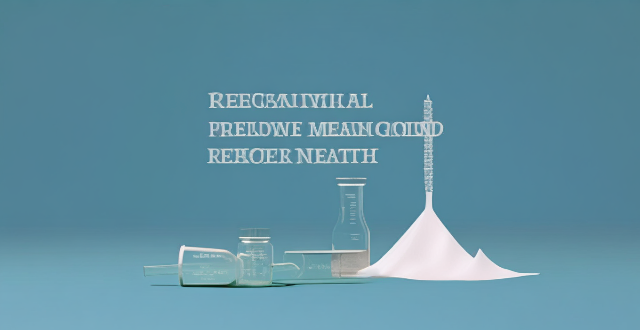
Can regular physical activity improve mental health ?
Regular physical activity can improve mental health by reducing the risk of depression and anxiety, enhancing self-esteem and cognitive function, improving sleep quality, and reducing stress. Practical recommendations for incorporating exercise into daily routines include starting small, finding enjoyable activities, setting realistic goals, making it social, incorporating strength training, staying consistent, listening to your body, and consulting with professionals.

How does physical activity affect children's cognitive development ?
This article discusses the positive impacts of physical activity on children's cognitive development, including improved attention and memory, enhanced executive functioning, increased learning abilities, reduced stress and anxiety, and promoted socialization and teamwork skills. Regular exercise can enhance blood flow to the brain, strengthen neural connections in the prefrontal cortex, stimulate neurogenesis, release endorphins, and provide a healthy outlet for releasing energy and emotions. Encouraging children to engage in regular physical activity can have long-lasting positive effects on their overall well-being and success throughout life.

Can physical activity reduce the risk of heart disease ?
Regular physical activity can significantly reduce the risk of heart disease by improving blood circulation, strengthening heart muscles, and reducing major risk factors such as high blood pressure, high cholesterol, and diabetes. Recommended types of exercise include aerobic activities and strength training. Following guidelines from health organizations like the WHO can help maintain cardiovascular health.

How does music influence motivation during physical activity ?
Music has a significant impact on motivation during physical activity. Fast-paced music increases energy levels, slow-paced music promotes relaxation, and enjoyable music enhances mood. Music can also distract from pain and fatigue, and personal preference plays a role in its effectiveness. Incorporating music into workout routines can make exercise more enjoyable and lead to better results.

Is there a link between physical activity and improved creativity ?
The text discusses the potential relationship between physical activity and creativity, highlighting various studies and theories that support this link. It suggests that regular physical exercise can enhance creativity by improving blood flow to the brain, promoting a relaxed mental state, and providing necessary breaks from mentally demanding tasks. The text also explores practical implications for individuals and organizations, suggesting strategies such as integrating movement into daily routines and designing active workspaces to boost creative thinking. Overall, while more research is needed to fully understand the relationship between physical activity and creativity, the text encourages incorporating physical activities into daily practices to potentially enhance imaginative thinking and innovation.
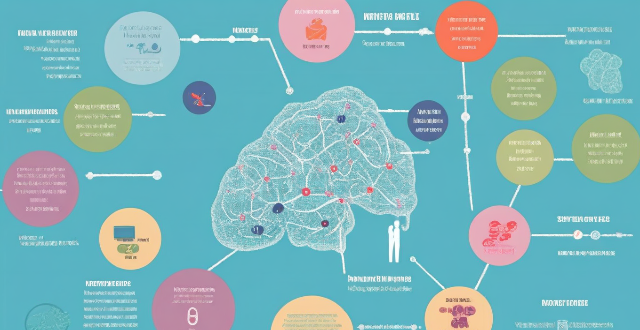
What are the benefits of physical activity on brain health ?
Physical activity has numerous benefits for brain health, includingPhysical activity has numerous benefits for brain health, including risk of dementia, including improved cognitive function, reduced risk of dementia, and increased overall brain volume. Regular exercise increases blood flow to the brain, delivering nutrients and oxygen to neurons, reducing inflammation and oxidative stress, and enhancing neural plasticity through increased levels of BDNF. Additionally, physical activity improves mood, reduces symptoms of depression and anxiety, and improves sleep quality. Incorporating regular exercise into your lifestyle can help maintain a healthy mind and body.

How can parents incorporate physical activity into their homeschooling routine ?
Incorporating physical activity into a homeschooling routine is crucial for a child's development, as it enhances cognitive abilities, improves mood, and fosters social skills. Parents can achieve this by scheduling regular exercise time, integrating movement into learning, involving outdoor activities, making physical activity fun, setting an example, and using technology. Starting the day with exercise, taking breaks for physical activity, teaching concepts through movement, combining art with movement, planning nature walks or hikes, assigning gardening tasks or outdoor chores, playing games, hosting dance parties, participating in physical activities alongside the child, enrolling the child in online fitness classes or following workout videos, and allowing the child to play active video games are some effective ways to incorporate physical activity into the homeschooling routine.

Can dehydration really cause muscle cramps during physical activity ?
Dehydration can lead to muscle cramps during physical activity due to loss of essential electrolytes and reduced oxygen supply to muscles. Signs of dehydration include thirst, dark urine, fatigue, dizziness, dry mouth, headache, and constipation. To prevent dehydration and muscle cramps, stay hydrated, eat a balanced diet rich in electrolytes, stretch before and after exercise, gradually increase intensity, and rest when needed.

How do I know if my online activity is being monitored or tracked ?
To determine if your online activity is being monitored or tracked, check for unusual network activity, such as slow internet speeds, unfamiliar pop-ups or ads, and unfamiliar programs or applications. Also, check your browser extensions and plugins for any unusual or unknown ones. If you suspect monitoring or tracking, run a virus scan and check for unusual processes on your device. Using a VPN can help protect your online privacy by encrypting your internet connection and masking your IP address.

What is the relationship between physical activity, mental health, and peace ?
The text discusses the interconnected relationship between physical activity, mental health, and peace. Regular physical activity can reduce anxiety and depression, improve mood, and enhance cognitive function, which in turn fosters emotional stability, clear thinking, and empathy - qualities necessary for maintaining peace. Sports and group activities promote teamwork, respect for others, and community building, contributing to peaceful interactions. Therefore, understanding these connections can lead to conscious choices that improve individual lives and contribute to a more peaceful world.